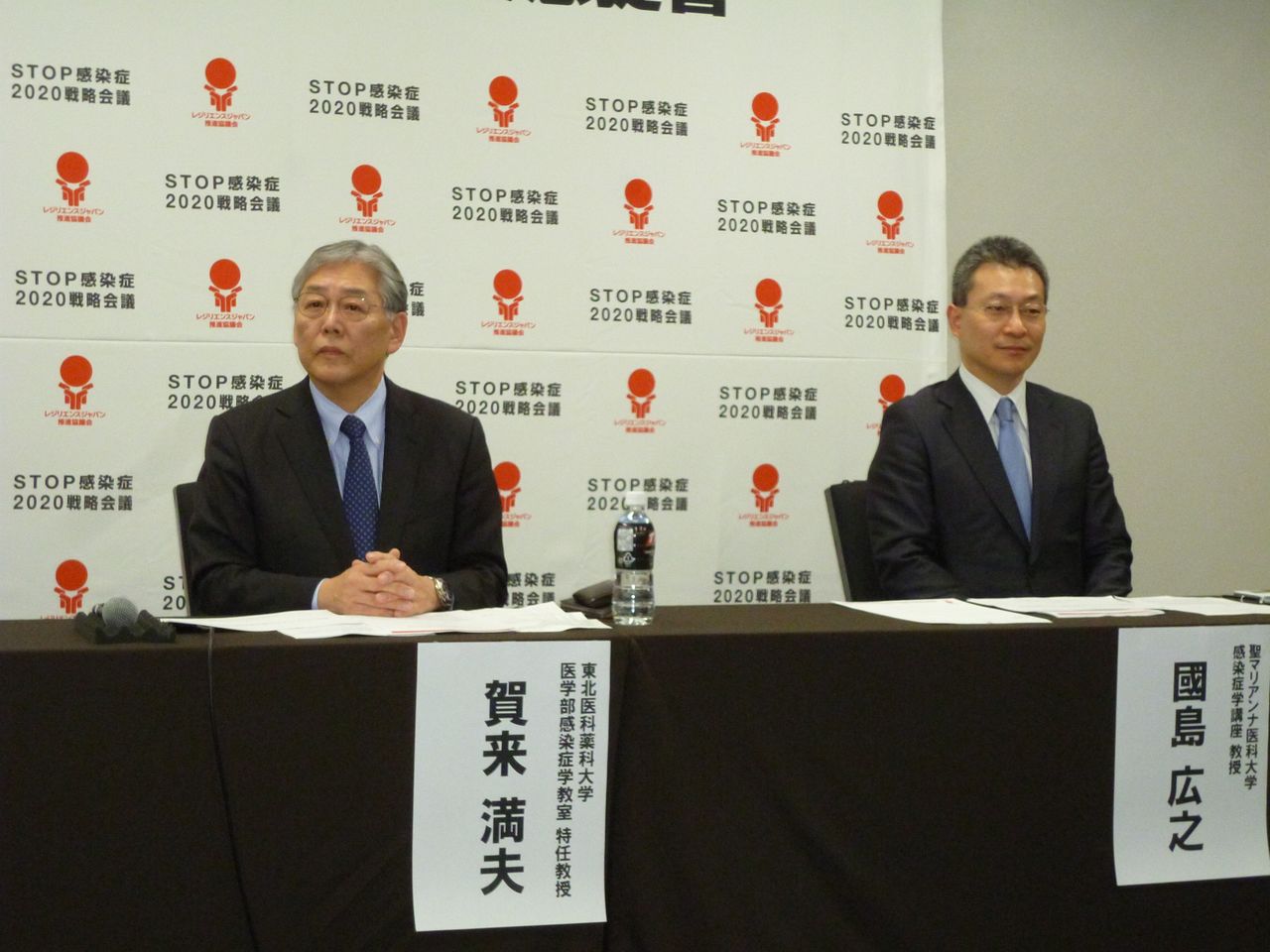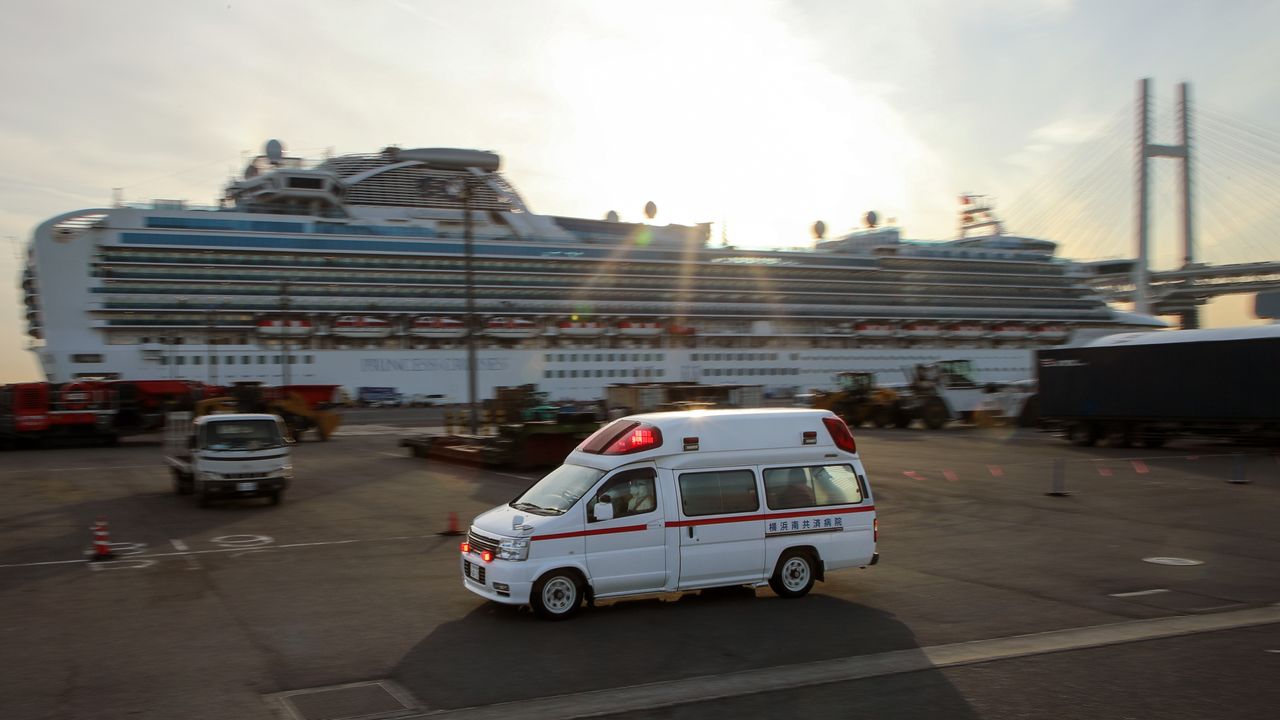Experts Offer Seven Urgent Tips for Avoiding Novel Coronavirus
Newsfrom Japan
Society Health- English
- 日本語
- 简体字
- 繁體字
- Français
- Español
- العربية
- Русский
Developing Habits to Prevent Infection
Public concern is high due to the frightening epidemic of the novel coronavirus that first broke out in Wuhan, China, newly christened COVID-19. Yet another cause for worry is the popular confusion spreading as a result of incorrect information being shared about the virus, which can cause pneumonia and other health problems. To counter this misinformation, the Stop Infectious Diseases 2020 Strategic Council held a press conference in Tokyo on February 10 to give citizens reliable information and present recommendations on how to acquire the lifestyle habits that wil help them avoid infection. The council members provided seven urgent tips for people to apply in their everyday lives.
1. Maintain a Proper Level of Concern
The enormous number of media reports about COVID-19, and the vast colume of information flooding out about it, make it easy to react improperly or excessively to the new coronavirus threat. At the same time, though, a considerable number of people have shown no concern whatsoever for infectious diseases. It is important to be aware that a virus could break out anywhere, at any time, and to take appropriate action based on correct information.
2. Learn About Viruses and Bacteria
Viruses and bacteria differ with regard to their level of infectivity, symptoms, mortality rates, and transmission routes. In the case of a virus for which no vaccine exists yet, such as the new coronavirus, the way to prevent the spread of infection is to cut off the routes of transmission. The key, in other words, is to avoid having the virus enter the body or allowing an infected person to spread it to others. The transmission routes of the new coronavirus, which are droplet (bodily fluid) and physical contact, must be cut off.
3. Develop the Everyday Habits that Stop Infection
The fundamentals for preventing infection are correct hand washing and proper etiquette with regard to coughing and sneezing. When it is not possible to wash your hands, you can use antibacterial wet tissues containing alcohol. Another effective approach is to sterilize objects and surfaces that many people might have touched to remove viruses and bacteria from them. Other effective measures include the consumption of foods that improve immunity (such as those containing butyric acid bacteria or lactic acid bacteria) and proper oral care.
4. Obtain Information About the Latest Technologies
New technologies have appeared recently to prevent virus infection through “persistent bacterial removal.” Removing viruses and bacteria using alcohol only has a temporary effect, rather than a long-lasting one, but new disinfectant products have been developed that can keep their disinfecting power for days or even months. Some air purifiers and ventilation systems that are highly effective in removing viruses and bacteria have also appeared on the market.
5. Remain Vigilant About Disease
Public interest in infectious diseases is expected to wane when the spread of COVID-19 comes to an end. But this summer, people from around the world will be traveling to Tokyo for the Olympics and Paralympics. Since many infectious diseases—such as influenza, dengue fever, and rubella—remain a threat in areas from which visitors will travel to Japan for the games, the key moment has arrived for the country to begin implementing serious measures to prevent the spread of infections.
6. Keep Other Infectious Diseases in Mind
In the run-up to the Tokyo Olympics and Paralympics it will be important to pay attention to other infectious diseases besides the new coronavirus. The risk that infections will spread widely rises if they coincide with major natural disasters like earthquakes, typhoons, and floods, which have been prevalent in recent years.
7. Stock Up on Infection-Preventing Goods
Just as people prepare for natural disasters, they should also stock up on essential items for avoiding the spread of infection. These include masks, disinfectant, soap, oral-care products, wet tissues (with alcohol), and sanitizing cloths. These items are particularly crucial for the elderly, the very young, and others who would be most vulnerable following a disaster, especially one that placed many people in close proximity in evacuation centers. Such items are currently scarce as a result of the COVID-19 outbreak, so people are advised to stock up on them once they become more available.

Kaku Mitsuo (left), a specially appointed professor at Tōhoku Medical and Pharmaceutical University and professor emeritus at Tōhoku University, and Kunishima Hiroyuki, a professor at St. Marianna Medical University, speak at the Stop Infectious Diseases 2020 Strategic Council press conference held in Tokyo on February 10, 2020.
Kaku Mitsuo, who chairs the Stop Infectious Diseases 2020 Strategic Council, had this message to deliver at the February press conference: “The news of the new coronavirus, particularly the outbreak on the cruise ship Diamond Princess docked in Yokohama, has overshadowed news of other infectious illnesses. But during this winter alone, 22 million people in the United States contracted influenza, of whom around 12,000 died. In Japan as well, last year there were 3,325 influenza deaths.” Kaku urged the public to be aware of the issue of infectious illnesses in their everyday lives, rather than simply leaving this issue to the government or other people.
(Originally published in Japanese. Banner photo: Workers wearing protective clothing walk toward the Diamond Princess cruise ship, whose passengers included numerous persons infected with COVID-19, at Daikoku Pier, Yokohama, on February 10, 2020. © Jiji.)
Further reading:
Unclear Symptoms Making Coronavirus Containment Difficult(February 10, 2020)
